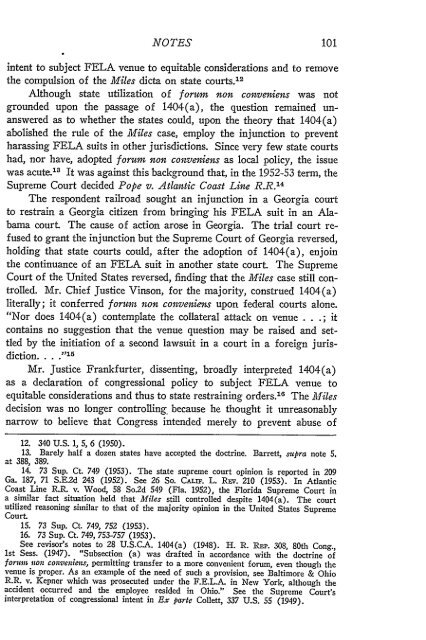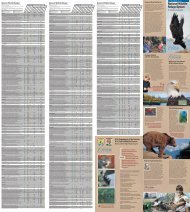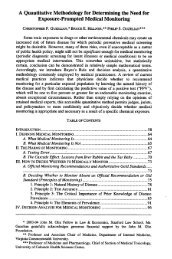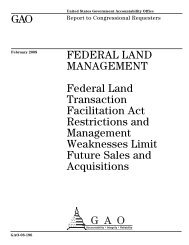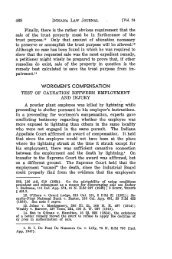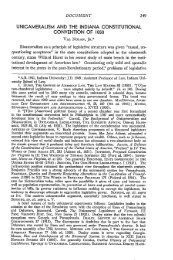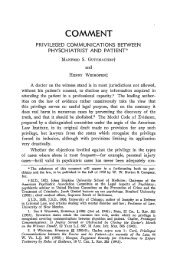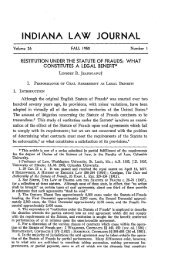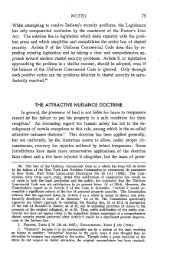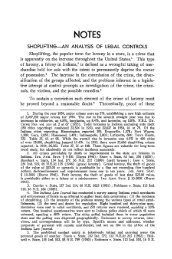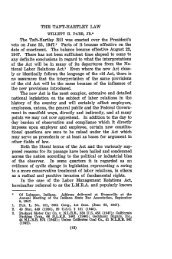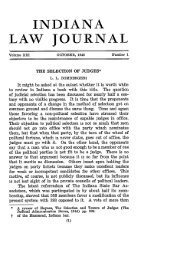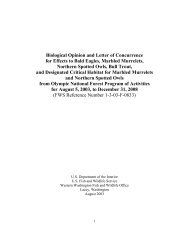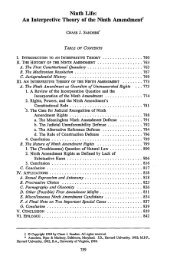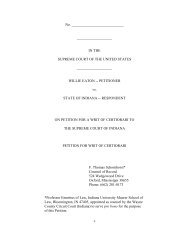fela venue abuse: necessity for congressional amendment
fela venue abuse: necessity for congressional amendment
fela venue abuse: necessity for congressional amendment
Create successful ePaper yourself
Turn your PDF publications into a flip-book with our unique Google optimized e-Paper software.
NOTES<br />
intent to subject FELA <strong>venue</strong> to equitable considerations and to remove<br />
the compulsion of the Miles dicta on state courts. 12<br />
Although state utilization of <strong>for</strong>um non conveniens was not<br />
grounded upon the passage of 1404(a), the question remained unanswered<br />
as to whether the states could, upon the theory that 1404(a)<br />
abolished the rule of the Miles case, employ the injunction to prevent<br />
harassing FELA suits in other jurisdictions. Since very few state courts<br />
had, nor have, adopted <strong>for</strong>um non conveniens as local policy, the issue<br />
was acute.1 3 It was against this background that, in the 1952-53 term, the<br />
Supreme Court decided Pope v. Atlantic Coast Line R.R. 4<br />
The respondent railroad sought an injunction in a Georgia court<br />
to restrain a Georgia citizen from bringing his FELA suit in an Alabama<br />
court. The cause of action arose in Georgia. The trial court refused<br />
to grant the injunction but the Supreme Court of Georgia reversed,<br />
holding that state courts could, after the adoption of 1404(a), enjoin<br />
the continuance of an FELA suit in another state court. The Supreme<br />
Court of the United States reversed, finding that the Miles case still controlled.<br />
Mr. Chief Justice Vinson, <strong>for</strong> the majority, construed 1404(a)<br />
literally; it conferred <strong>for</strong>um non conveniens upon federal courts alone.<br />
"Nor does 1404(a) contemplate the collateral attack on <strong>venue</strong> . . .; it<br />
contains no suggestion that the <strong>venue</strong> question may be raised and settled<br />
by the initiation of a second lawsuit in a court in a <strong>for</strong>eign jurisdiction.<br />
. ...15<br />
Mr. Justice Frankfurter, dissenting, broadly interpreted 1404(a)<br />
as a declaration of <strong>congressional</strong> policy to subject FELA <strong>venue</strong> to<br />
equitable considerations and thus to state restraining orders. 16 The Miles<br />
decision was no longer controlling. because he thought it unreasonably<br />
narrow to believe that Congress intended merely to prevent <strong>abuse</strong> of<br />
12. 340 U.S. 1, 5, 6 (1950).<br />
13. Barely half a dozen states have accepted the doctrine. Barrett, supra note 5.<br />
at 388, 389.<br />
14. 73 Sup. Ct. 749 (1953). The state supreme court opinion is reported in 209<br />
Ga. 187, 71 S.E.2d 243 (1952). See 26 So. CAni. L. Rzv. 210 (1953). In Atlantic<br />
Coast Line R.R. v. Wood, 58 So.2d 549 (Fla. 1952), the Florida Supreme Court in<br />
a similar fact situation held that Miles still controlled despite 1404(a). The court<br />
utilized reasoning similar to that of the majority opinion in the United States Supreme<br />
Court.<br />
15. 73 Sup. Ct. 749, 752 (1953).<br />
16. 73 Sup. Ct. 749, 753-757 (1953).<br />
See revisor's notes to 28 U.S.C.A. 1404(a) (1948). H. R. REP. 308, 80th Cong.,<br />
1st Sess. (1947). "Subsection (a) was drafted in accordance with the doctrine of<br />
<strong>for</strong>um non conveniens, permitting transfer to a more convenient <strong>for</strong>um, even though the<br />
<strong>venue</strong> is proper. As an example of the need of such a provision, see Baltimore & Ohio<br />
R.R. v. Kepner which was prosecuted under the F.E.L.A. in New York, although the<br />
accident occurred and the employee resided in Ohio." See the Supreme Court's<br />
interpretation of <strong>congressional</strong> intent in Ex parte Collett, 337 U.S. 55 (1949).


